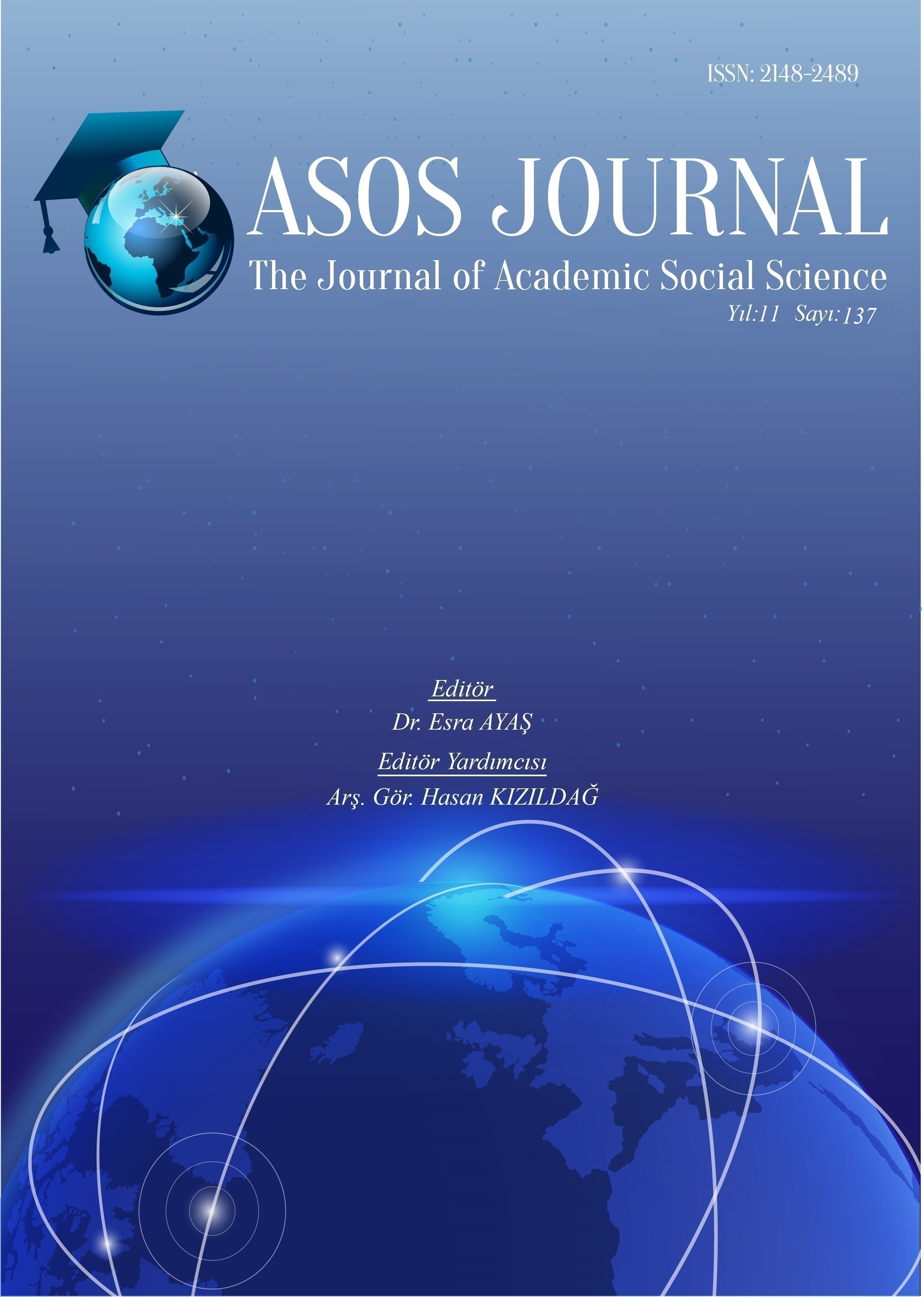KÖYLERDE GÖREV YAPAN ÖĞRETMENLERİN PANDEMİ DÖNEMİNDE YAPILAN UZAKTAN EĞİTİM SÜRECİNE İLİŞKİN GÖRÜŞLERİ
Author :
Abstract
Pandemi dönemi eğitim sistemini oldukça etkilemiştir. Uzaktan eğitime hızlı bir geçiş süreci yaşanmıştır. Bu sürecin her yönünün nasıl atlatıldığı bundan sonraki yaşanacak olası salgın sürecini yönetmek adına önemlidir. Bu araştırmanın amacı, salgın sürecinde köy okullarında görev yapan öğretmenlerin uzaktan eğitim faaliyetlerini yürütürken karşılaşmış oldukları sorunları belirleyerek bu problemlere çözüm önerileri sunmaktır. Araştırma nitel araştırma yaklaşımı çerçevesinde yürütülmüştür. Araştırmanın deseni olgubilim desenidir. Çalışma grubu; 2021-2022 eğitim öğretim yılında Tokat ili Erbaa ilçesi köy okullarında görev yapan ve belirlenen ölçütlere göre gönüllü 19 öğretmenden oluşmaktadır. Veriler toplanırken yarı yapılandırılmış görüşme tekniği kullanılmıştır. Yarı yapılandırılmış görüşmeler sonucu elde edilen ham veriler betimsel analiz yöntemi ile analiz edilmiştir. Analiz edilen veriler bulgular bölümünde araştırma sorularının sırasına göre tablolar halinde özetlenmiştir. Araştırma sonuçlarına göre öğretmenlerin pandemi dönemini “Psikolojik yıpranma, sosyal-kültürel ve ekonomik sorunlar, çeşitli sağlık sorunları, aile hayatlarına olumsuz etki, hobilerin kısıtlanması, gelecek kaygısı, yeni kurallara adapte sorunu ve yeni sorumluluklar” gibi kavramlarla açıkladıkları bulunmuştur. Çalışmada Pandemi döneminde yaşanan sorunlar fiziki, sosyal, eğitimsel ve ekonomik olmak üzere dört başlık altında incelenmiştir. Öğretmenler fiziki sorunların başında çalışma ortamı yetersizliğini ifade etmişlerdir. Öğretmenler tarafından ifade edilen sosyal sorunlar; sosyalleşememe, öğrencilerle iletişim sorunu, okul içi ve sosyal aktiviteleri gerçekleştirememe, hareketsiz yaşamak zorunda kalma, bireysel yaşama yönelme ve okul kültürüne uyumda sorun yaşama şeklindedir. Yaşanan sorunların çözümüne yönelik katılımcıların bazı önerileri; uzaktan eğitim sürecinde çalışma ortamının iyileştirilmesi, sportif-sosyal etkinliklerin ve psikolojik danışmanlık hizmetlerinin yapılması, okulların açık kalması, öğrenme eksiklerini gidermek için kursların yapılması, eğitim paydaşlarına teknoloji okuryazarlığı eğitimlerinin verilmesi, eğitim faaliyetlerinin materyal ve elektronik içeriklerle desteklenmesi şeklindedir.
Keywords
Abstract
Education system has been highly affected during the pandemic period. There has been a rapid transition process to distance education. How each side of this process is overcome is important in order to manage the possible epidemic process that may occur from now on. In this research, it is aimed to identify the problems that teachers working in village schools have encountered while conducting distance education activities during the epidemic process and to offer solutions to these problems. The research was conducted within the framework of qualitative research approach. The method of the research is the phenomenology method. The working group consists of 19 teachers who volunteered according to the designed criteria and work in the village schools of Erbaa district of Tokat province in the 2021-2022 academic year. Semi-structured interview technique was used to collect the data. The raw data obtained with the help of semi-structured interviews were analyzed by descriptive analysis method. The analyzed data were summarized in tables according to the order of the research questions in the findings section. According to the research results, it is found that teachers explained the pandemic period by concepts such as’’ psychological fatigue, socio-cultural and economic issues, health issues, negative impact on their family life, the restriction of the hobby, fear of the future, the problem of adapting to the new rules, and new responsibilities”. In the study, the problems experienced during the pandemic period were examined under four headings: physical, social, educational and economic. Teachers expressed the inadequacy of the working environment at the beginning of the physical problems. The social problems expressed by teachers are inability to socialize, communication problems with students, inability to perform intra-school and social activities, having to live sedentary, tending to individual life and having problems adapting to the school culture. Some suggestions of the participants to solve the problems experienced are to improve the working environment in the distance education process, to conduct sports and social activities and psychological counseling services, to keep schools open, to conduct courses to eliminate learning deficiencies, to provide technology literacy trainings to education stakeholders, to support educational activities with materials and electronic content.





